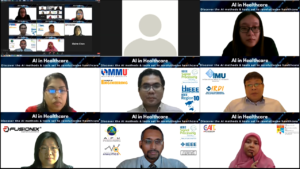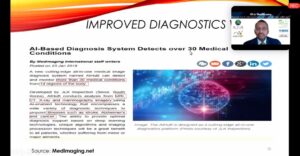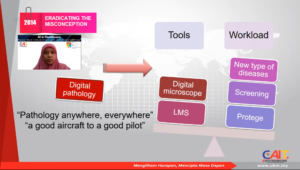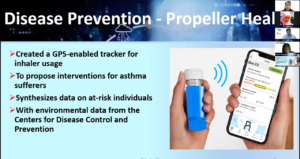[fusion_builder_container hundred_percent=”no” equal_height_columns=”no” menu_anchor=”” hide_on_mobile=”small-visibility,medium-visibility,large-visibility” class=”” id=”” background_color=”” background_image=”” background_position=”center center” background_repeat=”no-repeat” fade=”no” background_parallax=”none” parallax_speed=”0.3″ video_mp4=”” video_webm=”” video_ogv=”” video_url=”” video_aspect_ratio=”16:9″ video_loop=”yes” video_mute=”yes” overlay_color=”” overlay_opacity=”0.5″ video_preview_image=”” border_size=”” border_color=”” border_style=”solid” padding_top=”” padding_bottom=”” padding_left=”” padding_right=””][fusion_builder_row][fusion_builder_column type=”1_1″ layout=”1_1″ background_position=”left top” background_color=”” border_size=”” border_color=”” border_style=”solid” border_position=”all” spacing=”yes” background_image=”” background_repeat=”no-repeat” padding=”” margin_top=”0px” margin_bottom=”0px” class=”” id=”” animation_type=”” animation_speed=”0.3″ animation_direction=”left” hide_on_mobile=”small-visibility,medium-visibility,large-visibility” center_content=”no” last=”no” min_height=”” hover_type=”none” link=””][fusion_text] Artificial Intelligence (AI) is the development of intelligence machines with the simulation of human intelligence in such a way that the machines could think, act and work just like humans. AI had transformed industries around the world. Likewise, the adoption of AI in healthcare is rapidly changing in the face of healthcare delivery. Through applying image recognition in the field of digital pathology to discovering complex patterns for diagnosis, AI in healthcare is transforming the way information are collected and analysed for better patient care and experience. 25 November 2020 – The Institute for Research, Development and Innovation (IRDI) of the International Medical University (IMU) has successfully conducted a webinar titled AI in Healthcare: Discover the AI Methods and Toolsets to Revolutionise Healthcare in collaboration with Universiti Kebangsaan Malaysia (UKM), Multimedia University (MMU), Asia Pacific University of Technology and Innovation (APU), and Fusionex International. 
 [/fusion_text][fusion_table]
[/fusion_text][fusion_table]
| There were six speakers in this webinar: | ||
|---|---|---|
| Prof Leong Chee Onn | Deputy Director of Research, IMU’s IRDI | Prof Leong deliberated on the key challenges of delivering clinical impact with artificial intelligence. |
| A/Prof Mohammad Faizal Ahmad Fauzi | Faculty of Engineering, MMU | A/Prof Mohammad Faizal talked about bringing machine intelligence into digital pathology, particularly in a cancer diagnosis and prognosis. |
| Prof Dr R Logeswaran N Rajasvaran | Head of the Asia Pacific Centre for Analytics, APU | Prof Logeswaran shared his works of applying AI in medical imaging diagnostics. |
| Dr Ning Guo | Data Science Specialist, Fusionex International | Dr Ning Guo talked about IR4.0 for Digital Health. |
| Dr Afzan Adam | Senior Lecturer, Faculty of Information Science and Technology, UKM | Dr Afzan Adam shared her 5-years’ experience of introducing digital pathology in Malaysia. |
| Dr Raja Rajeswari | Senior Lecturer, APU | Dr Raja Rajeswari addressed on the applications of data science in healthcare. |
[/fusion_table][fusion_text] 

 This webinar insightfully brought together the latest technology advancements as well as practical real-life examples of applying AI in solving problems in healthcare, medicine, and diagnostics, as well as industry applications. With speakers consisting of a unique mixture of academia and industrial personnel, this webinar brought the audience to meet with AI pioneers at the forefront of research as well as explore real-world case studies to discover the value of AI in medicine.
This webinar insightfully brought together the latest technology advancements as well as practical real-life examples of applying AI in solving problems in healthcare, medicine, and diagnostics, as well as industry applications. With speakers consisting of a unique mixture of academia and industrial personnel, this webinar brought the audience to meet with AI pioneers at the forefront of research as well as explore real-world case studies to discover the value of AI in medicine.
Besides, the audience also had a glimpse of how AI is developed and leveraged to augment decision making, prevent medical errors, and reduce costs in medical imaging. The webinar was also substantial by exposing the approach to automate machine learning workflow, as well as creating and deploying models in hours, not weeks or months.
AI has been proved useful in the healthcare industry by helping the doctors to make better and faster decisions, as well as better understand the day-to-day patterns and needs of the people they care for. Nevertheless, there are key challenges that should be addressed. These include issues related to the dataset, biases, trustworthiness, human factors, as well as ethical and legal challenges involved in AI applications. Balance should be weighed between the benefits to patients and potential risks to patient safety, health equity, and data security. [/fusion_text][/fusion_builder_column][/fusion_builder_row][/fusion_builder_container]

